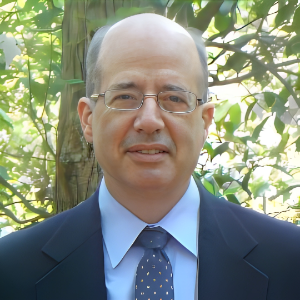Title : Representational proxies and interventional targets in addiction related impairments of self regulation
Abstract:
Abstract: Neural mechanisms for self regulation feature prominently in studies of addiction, which is characterized by the inability to resist compulsive behavior. Such mechanisms entail not just top down processes involved in the execution of decision making events, but also the neural representation of the self/agent, generally regarded as the source of decision making capacity. Impairments of the latter representation can be expected to weaken the ability to enlist capacities for self regulation. Several leading proposals have linked the sensorial representation of the body known as the peripersonal space (PPS) to the self/agent. In its current understanding the PPS is a neural representation constructed from the integration of multisensorial input originating from the body and characterized by its spatial location as a domain inhabited by the body. This representation is posited to be the subject of experience. Supporting this interpretation, several psychiatric or degenerative diseases have been linked to impairments of the phenomenal construct of the self and to the PPS. Study of these impairments could yield insight into how self regulation is altered in addiction. Schizophrenia subjects, for example, display a shallow PPS gradient, a symptom thought to impair their ability to distinguish themselves from others. The disease, moreover, is marked by disturbances of the self construct, seen in such symptoms as an abnormal sense of the body, loss of ego boundary and a confused sense of agency. Similarly, negative self regulation characterizes another cognitive disease, Alzheimer's Dementia, which manifests as a progressive loss of control by default mode, self circuitries that modulate task positive and task negative activity. Significantly, these diseases have been shown to negatively affect motor planning and execution, influences that have been linked to defects in goal pursuit and self agency. Extant studies suggest that impairments in the PPS are unlikely to be primary factors in these defects, however. Such evidence indicates that the PPS is constituted chiefly as a stochastic body space for sensorial determination of the likelihood that an object will come into contact with that space; that is as a defensive mechanism. Representation of the body in the PPS is notably subject to wide variance in accommodating probability determinations for interactive contingencies, which appears due to cognitive priors that modulate the representation. By contrast, theories of motor execution invoke a forward processing model in which the identification of expected actions are confirmed through sensory determinations requiring spatial accuracy, a process that has also been posited as a mechanism for identifying the source of actions. While goal specific information does not appear to be contained in discrete action identification processes of the motor plan - since schizophrenia patients have been shown to be capable of identifying discrete actions in automatic behaviors whereas they are impaired in the intentional performance of motor tasks – the need to accommodate the spatiotemporal features of the world in task execution is nonetheless evident, suggesting that action selection processes involve neural mechanisms other than the PPS. This talk will explore whether an alternative representation of the body, the body schema, may instead be an important proxy for global self-representation during dynamic action and may be attributed as the self during action execution. Evidence favoring this interpretation has been the identification of neuron populations linked to more global features of the body that represent the body globally in its dynamic interactions with the environment and the discovery that schizophrenia subjects are unable to attribute self initiated actions to themselves, points that will be taken up in this talk.
What will audience learn from your presentation?
- Decision making impairments figure prominently in controlling against substance abuse
- Understanding the brain related basis of these impairments could help future interventional practice including both the new neurostimulation technologies and pharmacological intervention




